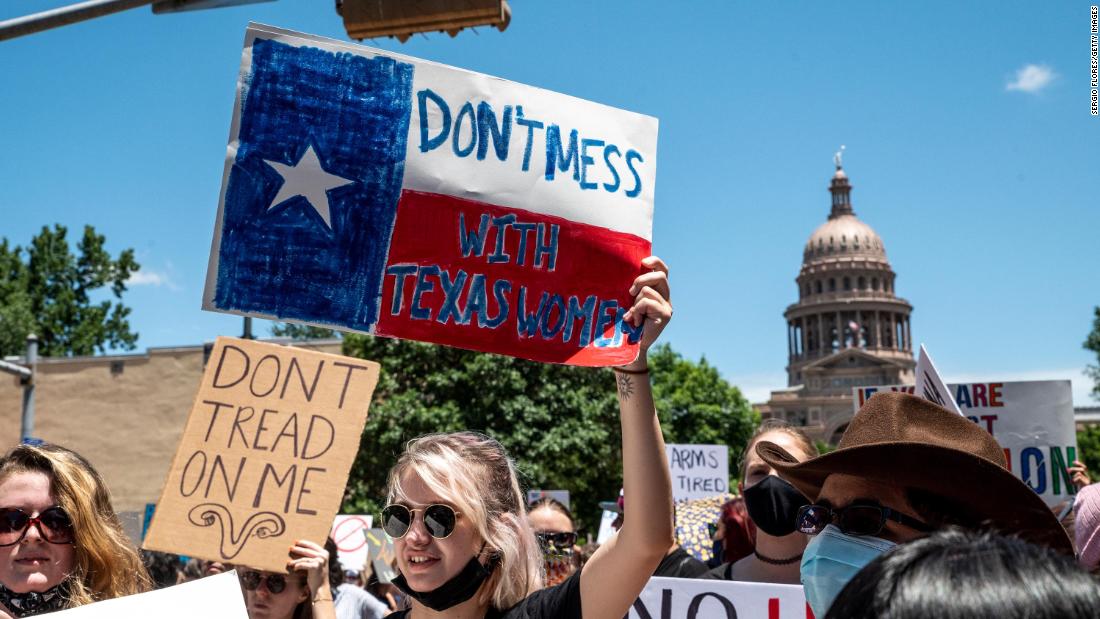
The lack of judicial intervention means that the law, which is one of the strictest in the nation and prohibits abortion before many people know they are pregnant, comes into force if there is no other judicial intervention.
The law allows private citizens to file civil lawsuits against anyone who assists a pregnant person seeking an abortion in violation of the ban.
No other six-week ban has been allowed to take effect, even briefly.
The case comes as judges are ready in the next term to rule on the constitutionality of a Mississippi law banning abortion at 15 weeks.
Under Texas law, abortion is prohibited when a fetal heartbeat is detected, which is often before a woman knows she is pregnant. There are no exceptions in case of rape or incest, although there is an exemption for “medical emergencies.”
Abortion providers asked judges to block the ban while legal challenges arose because they argued that allowing entry into force would “immediately and catastrophically reduce access to abortion in Texas,” ultimately forcing instance to close many abortion clinics.
They argued that if the law were allowed to go into effect, it would have the impact of “banning the care of at least 85% of Texas aborted patients” and would mean that lawsuits could be filed against a wide range of people, including a person driving his friend. to get an abortion, someone who provides financial aid, and even a member of the clergy who attends a patient.
New legal strategy
In the new legal strategy, the state legislature designed the law to prevent government officials from applying it directly. The measure was intended to make it much more difficult to file a pre-enforcement appeal because there are no regular government officials to deal with in court.
Instead, the law allows private citizens (anywhere in the country) to file civil lawsuits against anyone who helps a pregnant person seeking an abortion in violation of the ban.
Opponents say the law is part of a new wave of laws proposed by states hostile to abortion rights and will inspire other states to follow suit.
Texas officials’ lawyers urged judges to allow the law to go into effect, saying the clinics had not shown they would be “personally harmed by a bill that can never be enforced against them.”
The case comes when judges have already agreed to consider a Mississippi law during the next term banning most abortions at 15 weeks. Proponents of abortion rights say the Mississippi and Texas laws are a direct challenge to Roe v. Wade, the 1973 opinion that legalizes abortion nationwide before viability, which can occur in the around 24 weeks of pregnancy.
The clinics initially filed a lawsuit not only against Texas Republican Attorney General Ken Paxton, but also against Texas judges and state secretaries with jurisdiction to enforce the law. They also addressed Mark Lee Dickson, who is the director of Right to Life East Texas.
In short, providers said patients “who can scrape resources” will be forced to try to leave the state, and others will be forced to “get pregnant against their will.”
This story has been updated with additional details.